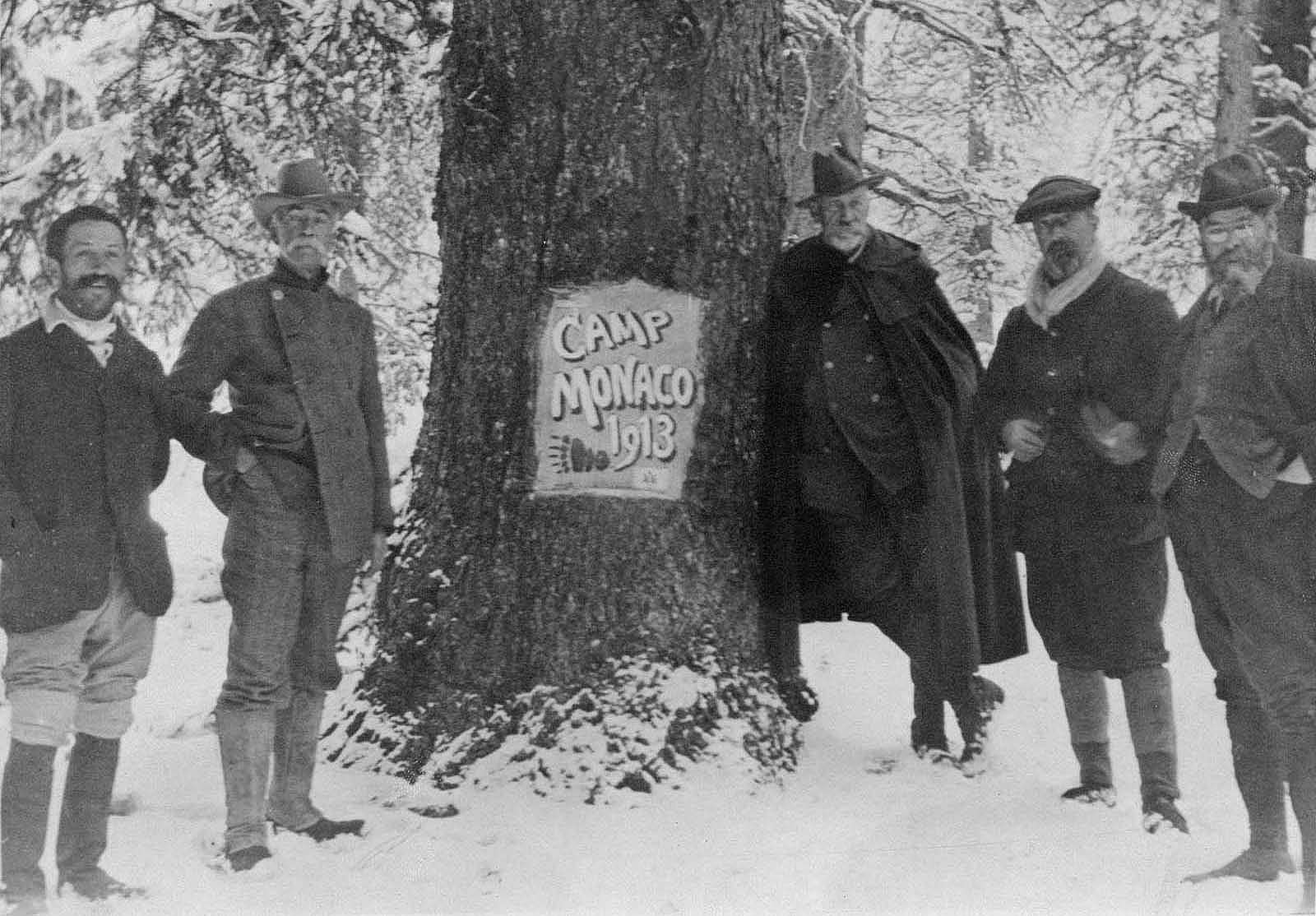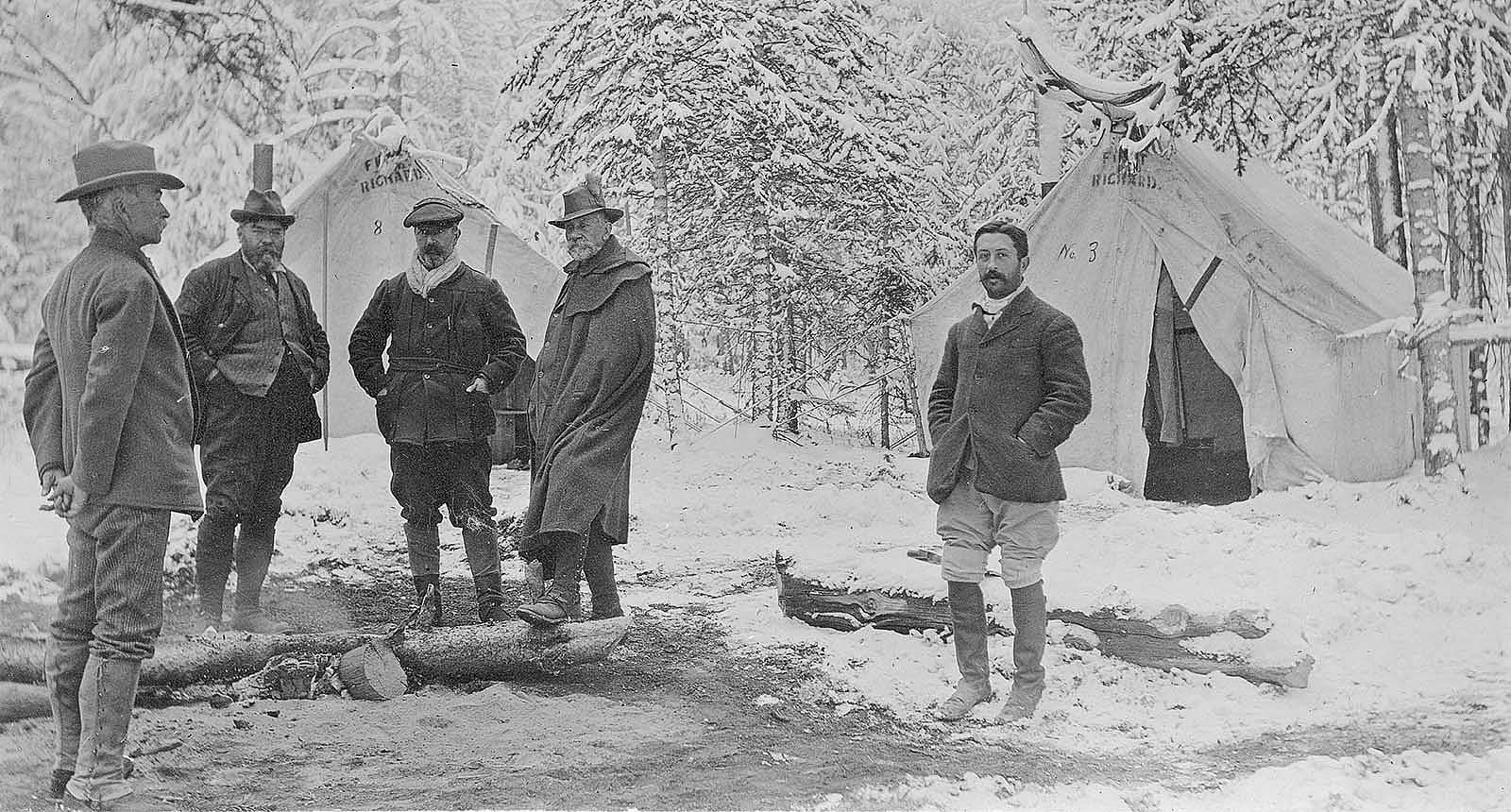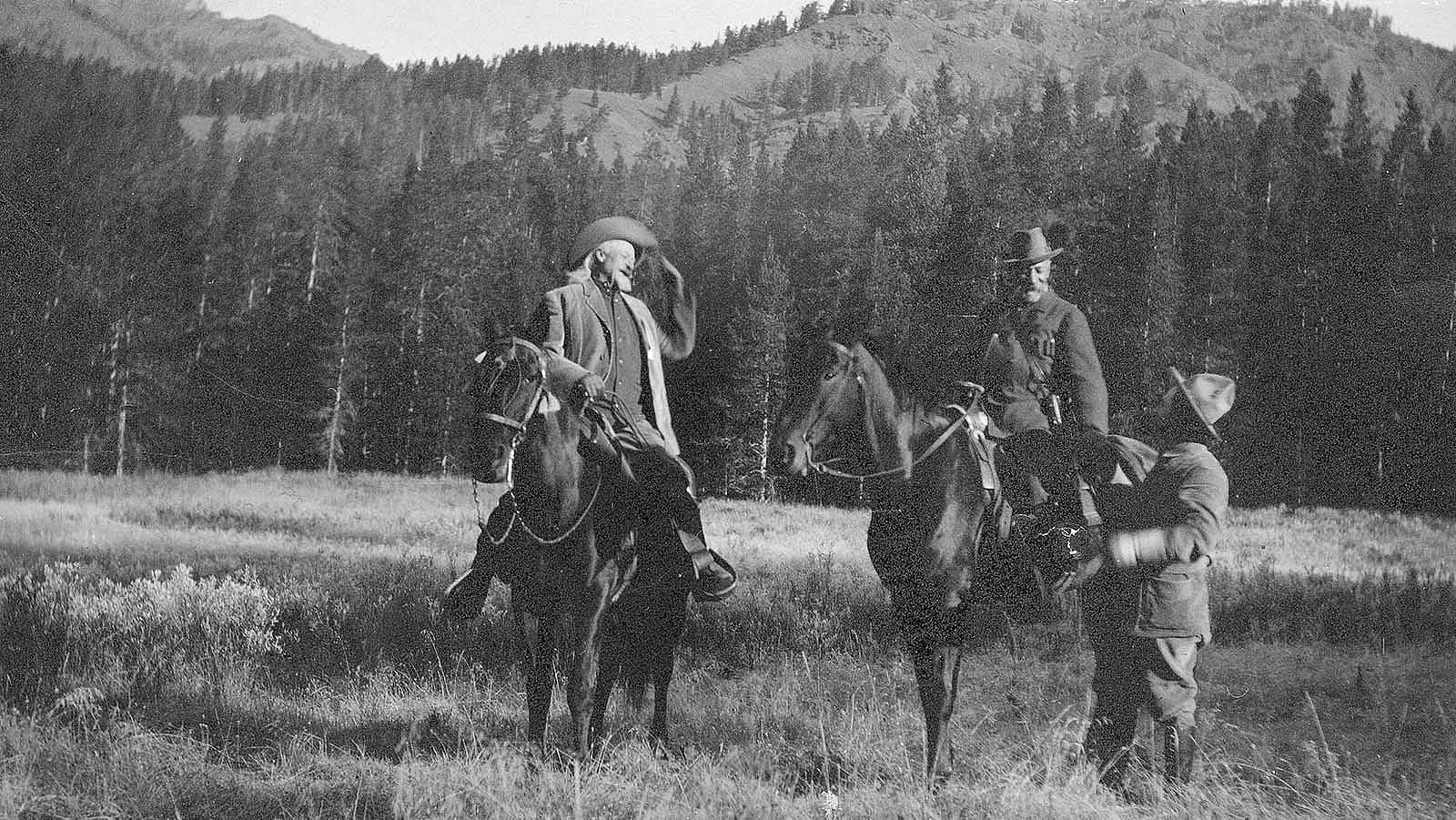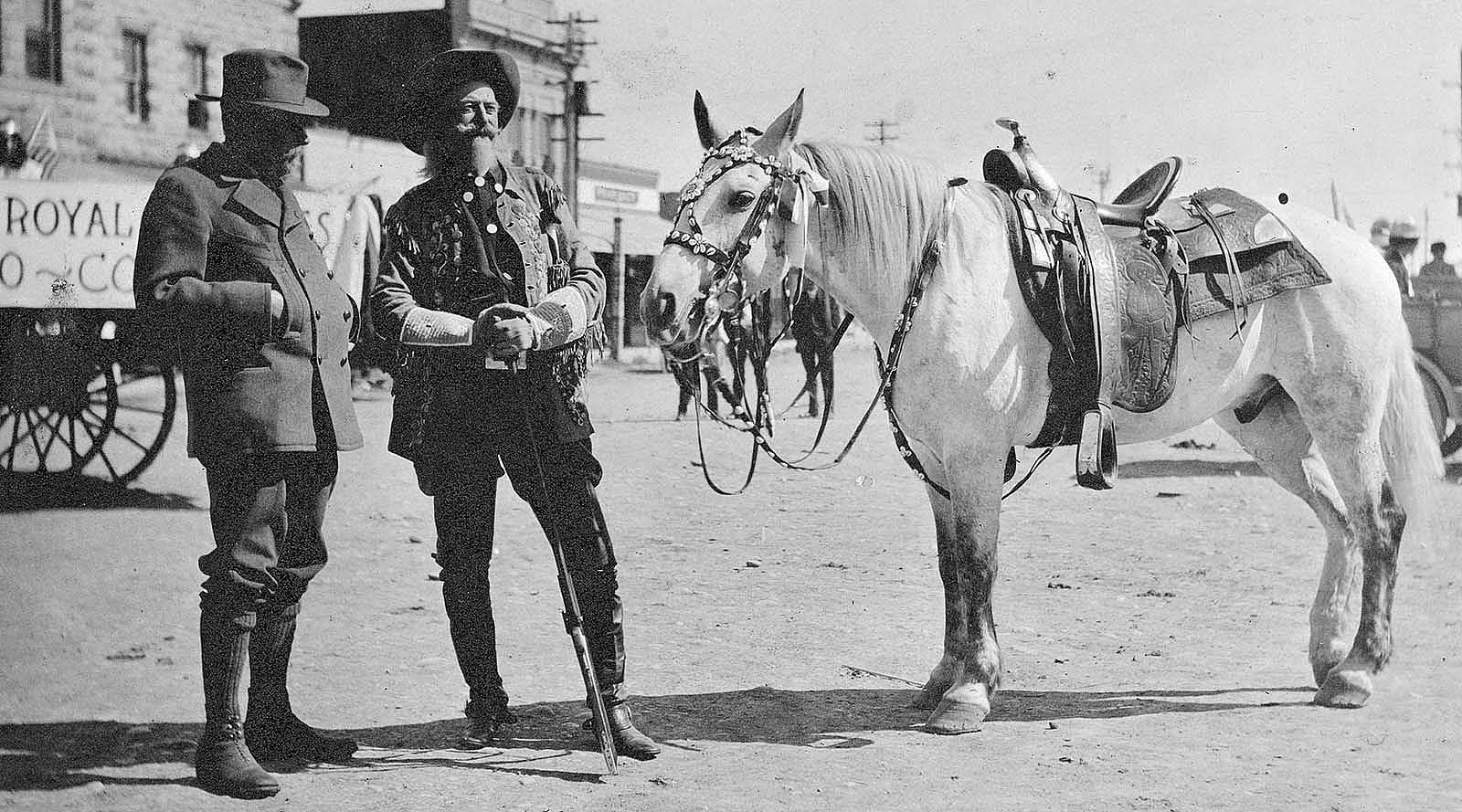The 2025 Camp Monaco Prize
The Camp Monaco Prize Jury is pleased to announce that Dr. Corinna Riginos, Dr. Courtney L. Larson, and Ms. Charlotte N. Cadow, representing The Nature Conservancy in Wyoming, have been selected as the 2025 Camp Monaco Prize recipients. The title of their proposal is: “Defending the Greater Yellowstone Ecosystem Against Potentially Devastating Annual Grass Invasion.“
The Prize was established in 2013 through a partnership between the Buffalo Bill Center of the West’s Draper Natural History Museum and the Prince Albert II of Monaco Foundation to foster native biodiversity conservation in the Greater Yellowstone Ecosystem (GYE) through innovative scientific research, management action, and public outreach that carries global, as well as regional implications.
Invasive annual grasses, most notably cheatgrass, have become an urgent threat to biodiversity in the Greater Yellowstone and throughout the imperiled sagebrush ecosystem that covers much of the western United States. Cheatgrass outcompetes native plants, dramatically reducing the food and habitat available to big game, birds, and other biodiversity. It dries out early in the season and becomes highly flammable tinder, often leading to hot, fast wildfires. While large areas of the West have been devastated by cheatgrass, the cool climate of the Greater Yellowstone Ecosystem has slowed its spread so far. However, as Dr. Riginos notes, “preventing and controlling further spread into currently uninvaded areas is now an urgent priority.”
The team will take an interdisciplinary approach to supporting managers with maps, evidence, community engagement and policies that enable more proactive, defensive actions to keep cheatgrass at bay.
The Nature Conservancy’s blend of science and pragmatic conservation makes this team well-suited to work across social and ecological disciplines, contributing to the fields of restoration ecology and invasion biology, while directly informing land management practices in Greater Yellowstone.
Rachel Clausing, Camp Monaco Prize Jury Committee member, praised the project as taking a “truly integrative approach to address invasive species management. In combining ecological science, practical management, and meaningful community involvement—including local and Indigenous knowledge—it reflects the spirit of the Prize as well as the mission of the Prince Albert II of Monaco Foundation in general and promises a strong ecological and social impact across the region and beyond.”
Dr. Charles Preston, Camp Monaco Prize Jury Chairman, stated that competition for the 2025 Camp Monaco Prize was especially strong. “The winning proposal embodies the purpose of the Camp Monaco Prize to support innovative, cross-disciplinary, cross-jurisdictional initiatives that address urgent conservation needs and lay the foundation for broad public engagement and on-the-ground management actions” according to Preston. “While the topic focuses on Greater Yellowstone, the proposed project carries implications for battling invasive species and conserving shrub-steppe ecosystems around the world” he said.
“Thanks to the vision and generosity of the Draper Natural History Museum and the Prince Albert II of Monaco Foundation, we hope to make timely strides to hold off this existential threat to the biodiversity, human well-being, and very character of the region,” Dr. Riginos adds. “We look forward to working with local land managers and in doing so, inform invasive grass management in other parts of the world.”
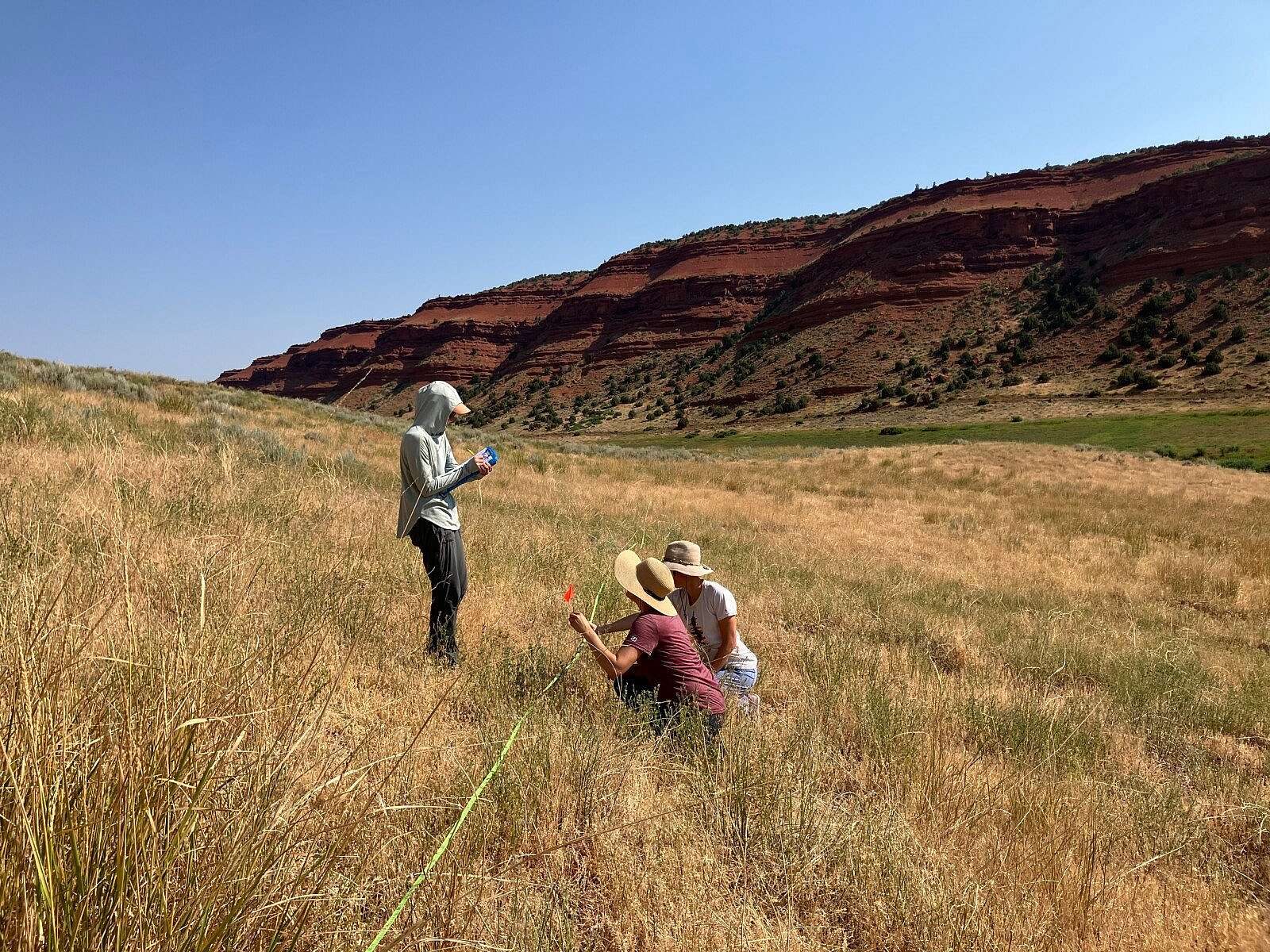
Scientists monitor the spread of cheatgrass at Red Canyon Ranch, a Nature Conservancy preserve near Lander, Wyoming. © Corinna Riginos/TNC
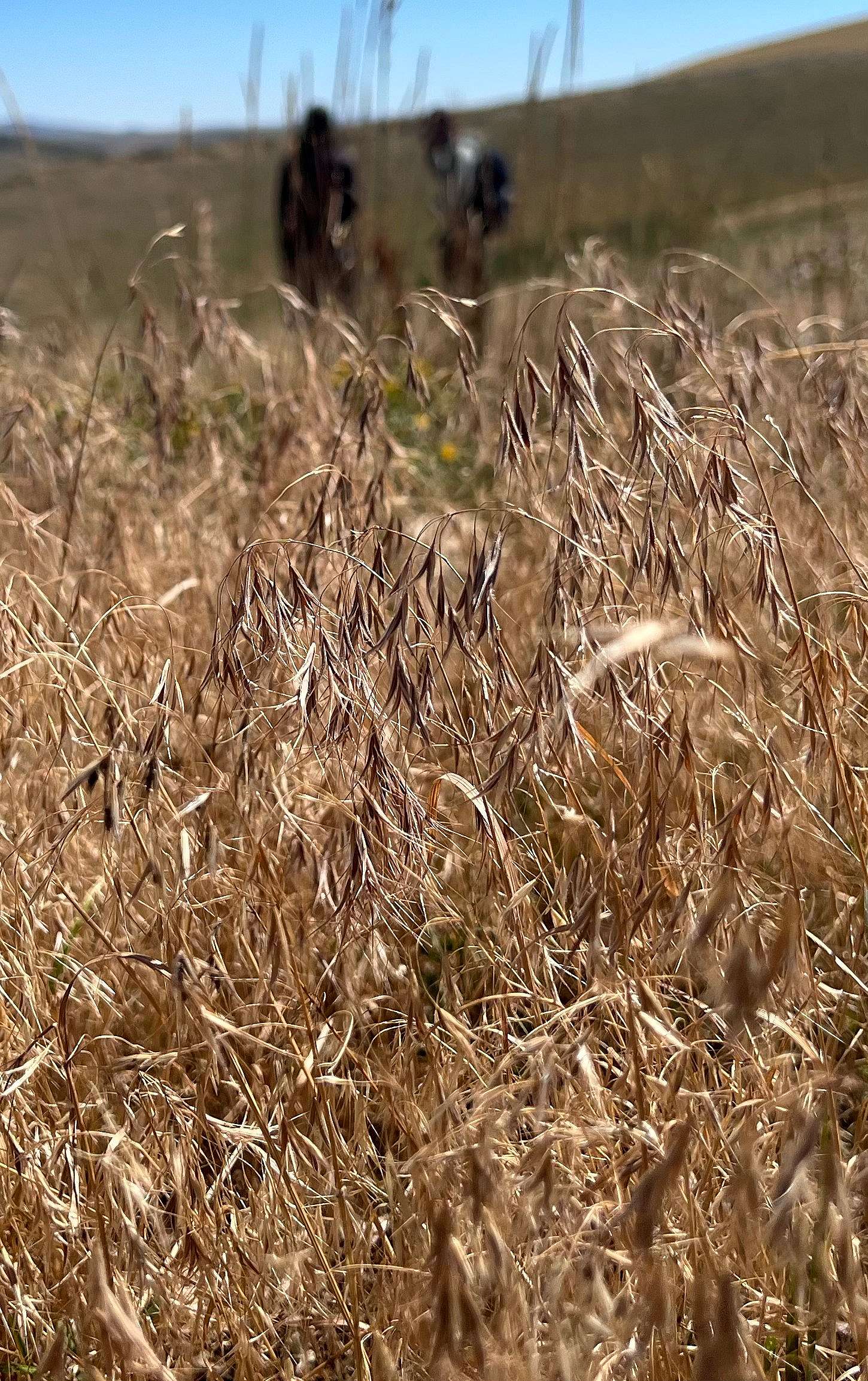
Cheatgrass close up – Cheatgrass is a highly invasive grass that is outcompeting native grasses across the West. © Charlotte Cadow/TNC
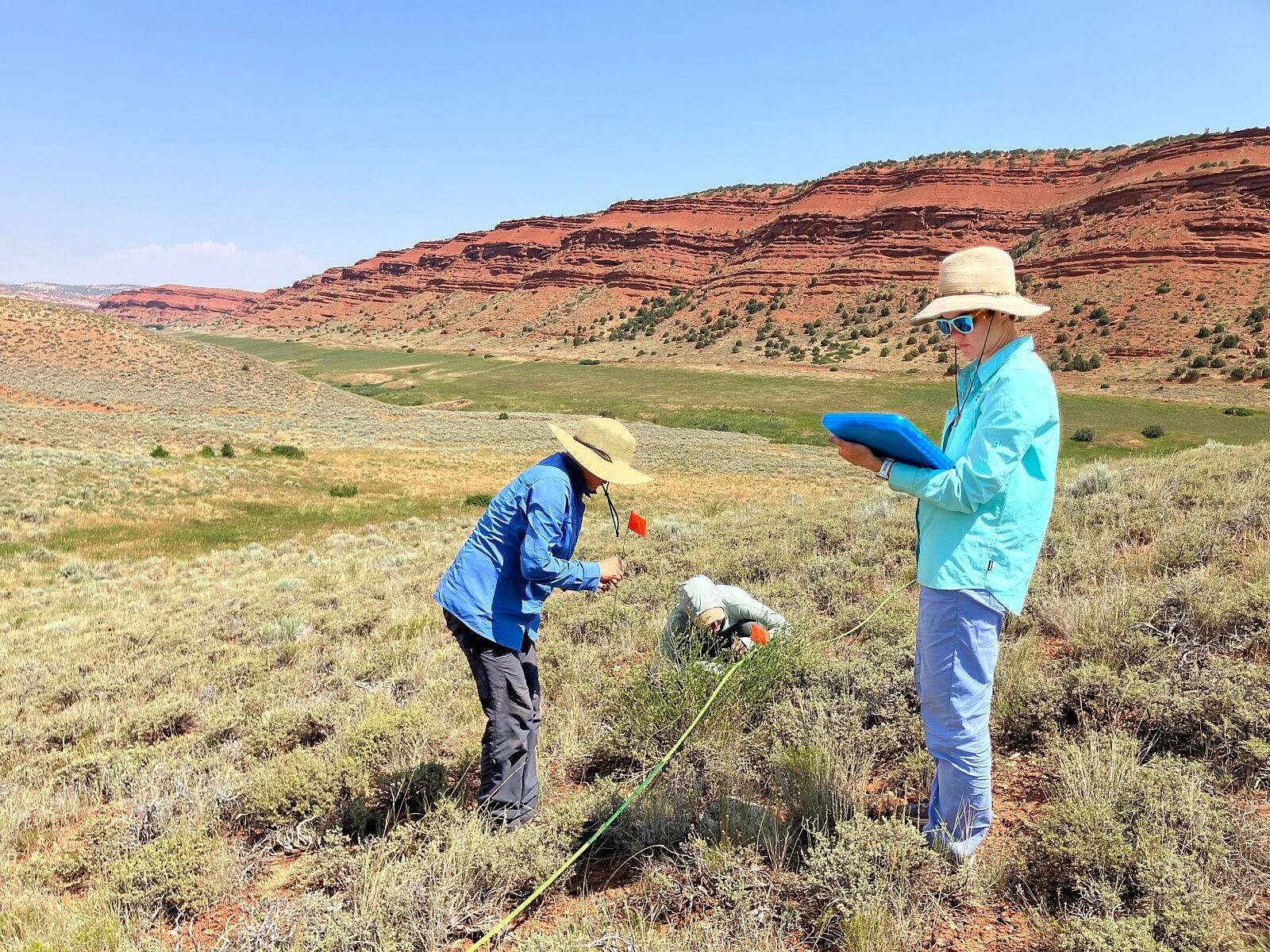
Scientists monitor the spread of cheatgrass at Red Canyon Ranch, a Nature Conservancy preserve near Lander, Wyoming. © Corinna Riginos/TNC
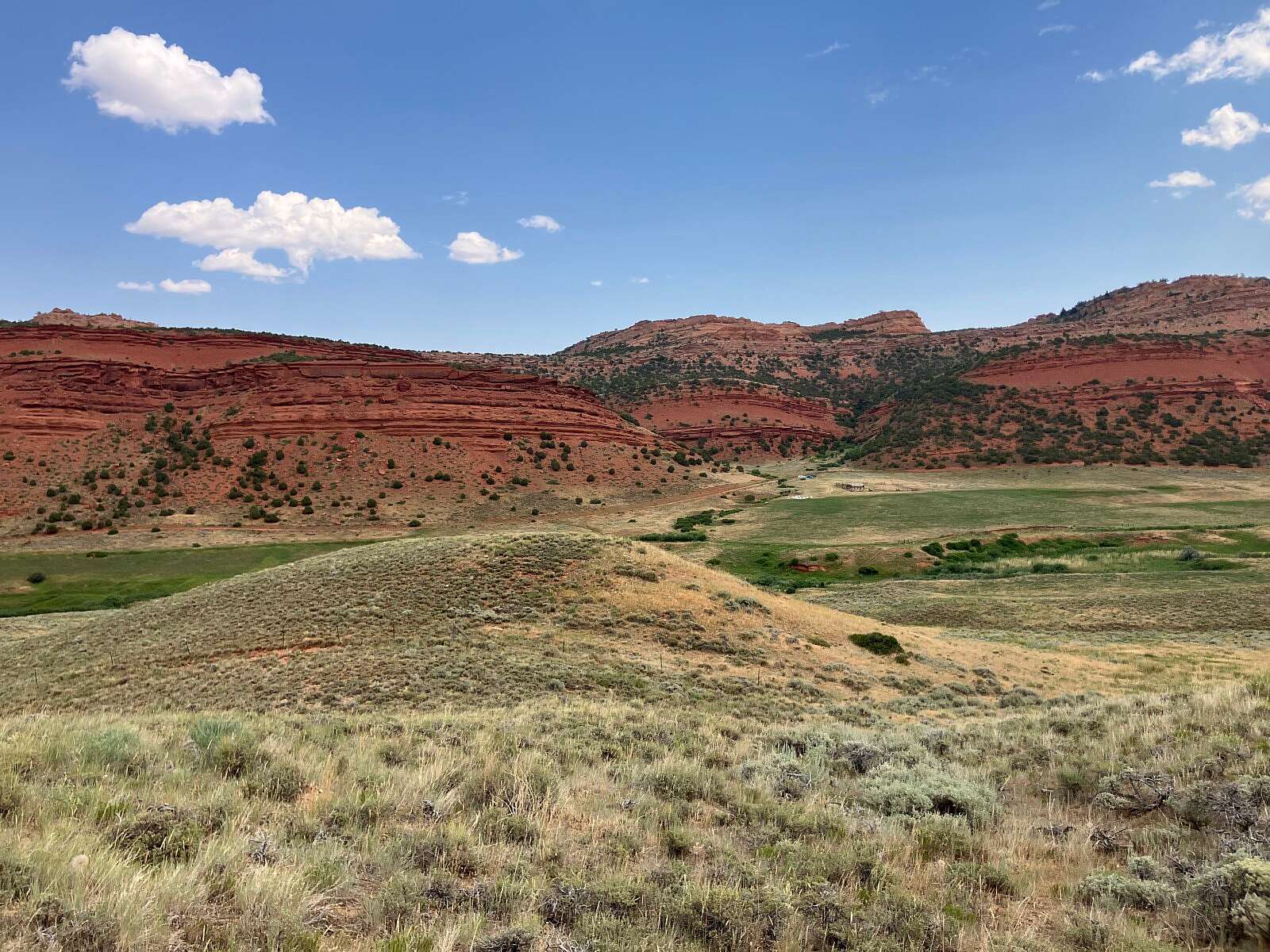
Red Canyon Ranch cheatgrass on south-facing slope: Sun-loving cheatgrass quickly overtakes native plants on south-facing slopes such as the right side of this hill. © Corinna Riginos/TNC
About the Award Recipients
Charlotte Cadow
Charlotte Cadow is the Wyoming Sagebrush Ecologist at The Nature Conservancy. She holds an M.S. in Plant Biology from the University of Vermont’s Field Naturalist Program and a B.A. in Environmental Science and Environmental Education from Colorado College. Before joining TNC, Charlotte worked as an environmental educator in Colorado, Florida, New Hampshire, Vermont, and Wyoming. She also collaborated with the Vermont Urban and Community Forestry Program to study the social and ecological impacts of the functional extinction of black ash trees. She is committed to strengthening the capacity of human communities to steward resilient ecological systems, especially in the sagebrush steppe.
Charlotte lives in Jackson, WY, with her husband, dog, and two cats. She enjoys trail running, backpacking, skiing in all its forms, birding, and botanizing.
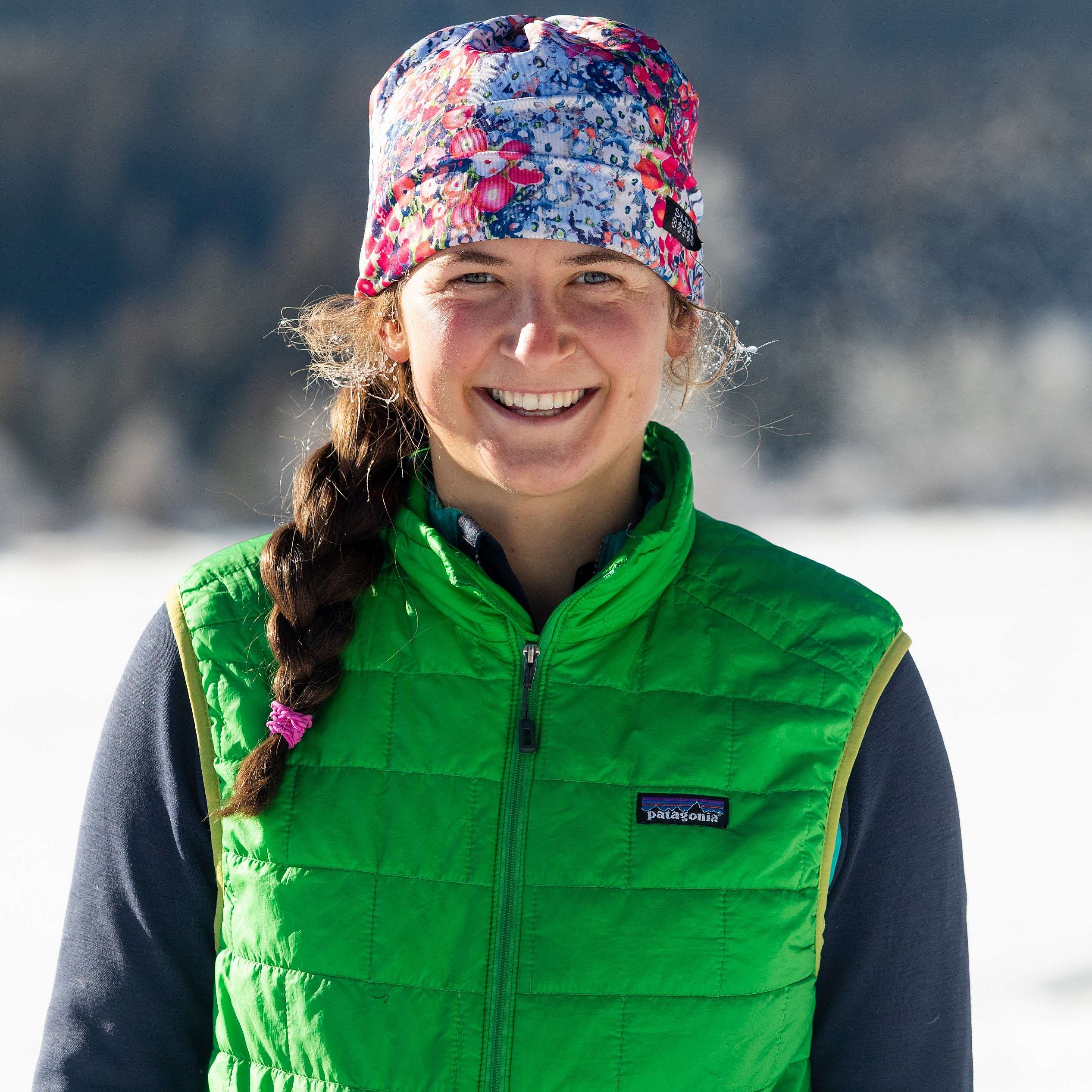
Courtney Larson
Courtney Larson joined TNC in July 2019 as a Conservation Scientist working to understand how land use, climate change, and human disturbance affect ecological communities. Her research helps inform planning and management strategies that will sustain biodiverse and functioning ecosystems. Courtney received her Ph.D. and M.S. in Ecology from Colorado State University, where she studied the effects of recreation on wildlife. She holds a B.A. in Environmental Studies and International Studies from Colby College. Prior to graduate school she worked as a GIS and spatial analyst for several years, and is committed to using spatial data and statistical analysis to inform land management decision-making in her work at TNC.
Courtney lives in Lander, WY with her husband, two young daughters, and cat. She enjoys hiking, cross-country skiing, reading, baking, and trips to the desert to look for lizards.
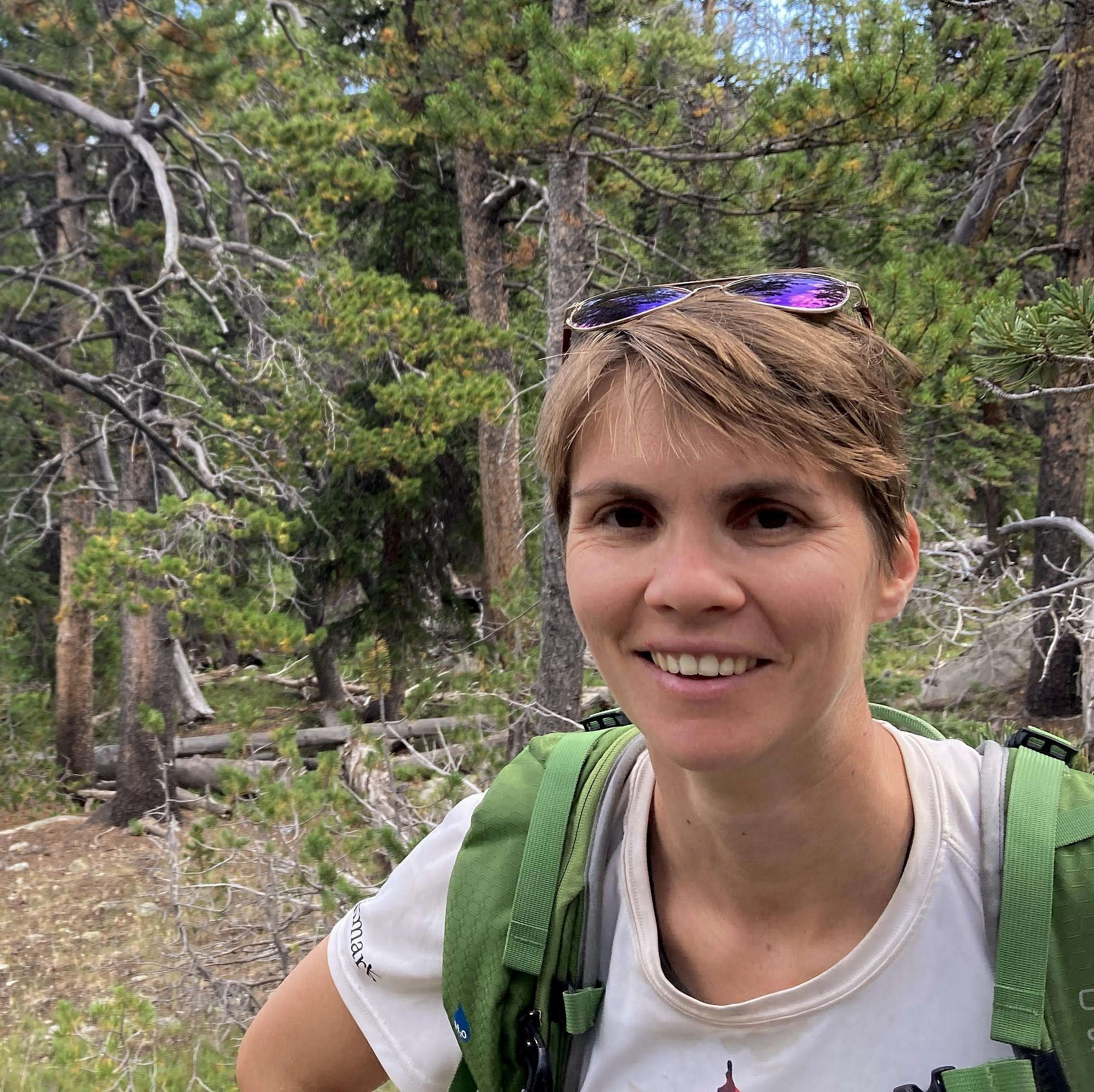
Corinna Riginos
Corinna Riginos is the Wyoming Director of Science at The Nature Conservancy. Corinna studied Environmental Science at Brown University, spent two years as a Fulbright Fellow in South Africa, and then went on to get her Ph.D. in Ecology from the University of California at Davis studying interactions among habitat, large wildlife, and livestock in Kenya. She lived and worked in Kenya for eight years, spanning postdoctoral fellowships at Princeton University and the University of Wyoming, before moving to Wyoming full-time in 2013. She has published more than 50 peer-reviewed scientific papers and worked closely with numerous land managers to translate research into conservation action. Corinna’s work includes understanding the impacts of invasive species (cheatgrass in Wyoming and big-headed ants in Kenya), making roads more passable for big game to cross, and generally restoring and managing the imperiled sagebrush ecosystem. Corinna lives in Lander, WY with her two sons and partner. She loves to windsurf, mountain bike, hike, read, and write.
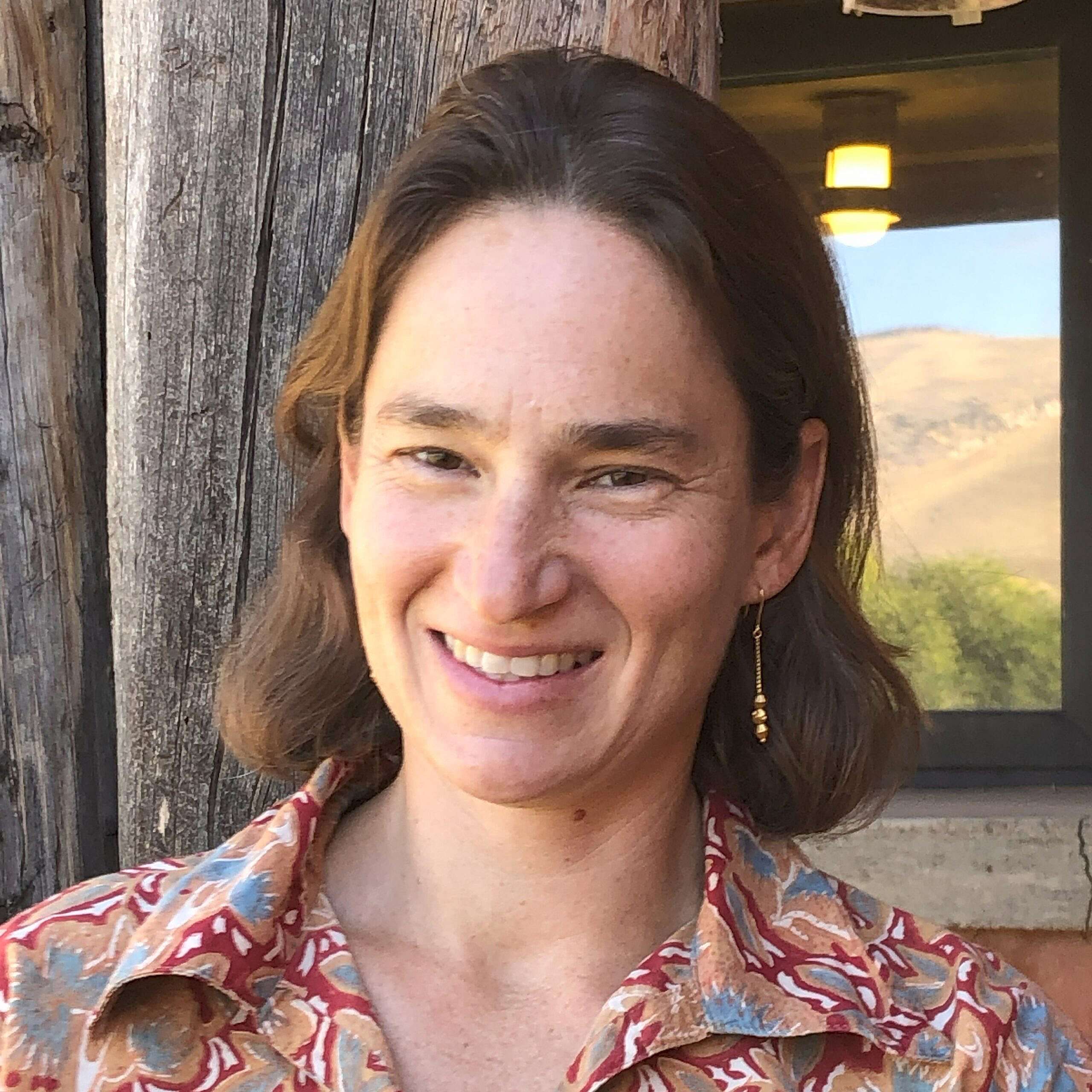
History of the Camp Monaco Prize
The Camp Monaco Prize commemorates a historic meeting between Prince Albert I of Monaco and William F. “Buffalo Bill” Cody. In 1913, Buffalo Bill accompanied His Serene Highness Prince Albert I of Monaco for an extraordinary hunting expedition near Yellowstone National Park, establishing what is now known as Camp Monaco. Prince Albert I was an avid oceanographer but was also fascinated by the wonders of the Greater Yellowstone Ecosystem, which were not as well known or documented as they are today.
A camera crew accompanied the royal hunting party, resulting in extensive press coverage, and established an important connection between Cody, Wyoming, and the Principality of Monaco. On the 100th Anniversary of “The Royal Hunt,” Prince Albert II of Monaco announced his intentions to honor the legacies of both his grandfather, Prince Albert I, and Buffalo Bill. The $100,000 Camp Monaco Prize represents the shared dedication of the Buffalo Bill Center of the West’s Draper Natural History Museum and Prince Albert II of Monaco Foundation to the conservation and resiliency of native biodiversity. The prize is intended to stimulate scientific exploration and public education to expand the knowledge and understanding of biological diversity in the Greater Yellowstone Ecosystem. The winning application will foster concrete actions to safeguard biodiversity in conjunction with continued social and economic development.
Since 2013, the Camp Monaco Prize has been awarded to three laureates. Learn more about each laureate and previous projects funded by the Camp Monaco Prize by clicking on the videos beneath each laureate.
Historic images: McCracken Research Library, Buffalo Bill Center of the West.
Learn about the first 10 years of the Camp Monaco Prize
Meet the Past Recipients
2019 Recipient
Monica Turner, Rupert Seidl, Werner Rammer, and Zak Ratajczak
Anticipating and Envisioning Future
Landscapes of Greater Yellowstone
2016 Recipient
Craig Lee, David McWethy, and Greg Pederson
Biodiversity of the Longue Durée: Melting ice and the synergy of humans, bison, bighorn sheep, and whitebark pine in the Greater Yellowstone
2013 Recipient
Arthur Middleton and Joe Riis
Rediscovering the Elk Migrations of the Greater Yellowstone Ecosystem: A Project of Transboundary Science and Outreach
Meet the Partners
About the Draper Natural History Museum
The Draper Natural History Museum is a division of the world-renowned Buffalo Bill Center of the West complex, in Cody, Wyoming. Opened in 2002 as the first major natural history museum established in and for the twenty-first century, the Draper Museum strives to increase understanding and appreciation for the relationships binding nature and humans in the American West, particularly the Greater Yellowstone region.
The Draper pursues this goal through an interconnected suite of activities including scientific research, collections development, public outreach, and more than 40,000 square feet of highly immersive exhibits on the ecology of the Greater Yellowstone landscape.
About the Prince Albert II of Monaco Foundation
Founded by HSH Prince Albert II of Monaco in 2006, the eponymous Foundation is a global non-profit organization, committed to progressing planetary health for present and future generations by co-creating initiatives and supporting hundreds of projects across our beloved Planet.
The Prince Albert II of Monaco Foundation focuses its efforts on three principal domains of action: climate change, biodiversity and water resources, in the following main geographical regions: the Mediterranean Basin, the Polar Regions and the Least Developed Countries. The Foundation has already granted +110 million euros to fund more than +780 projects that focus on limiting the effects of climate change, promoting renewable energies, protecting the ocean, preserving biodiversity, managing water resources and combating deforestation.
The Prince Albert II of Monaco Foundation has 11 foreign branches in the following countries: France, United States, United Kingdom, Switzerland, Canada, Germany, Italy, Singapore, Spain, China and Latin America. The US branch, established in 2008, supports the Foundation’s initiatives and extends the impact of its work by promoting sustainable and equitable management of natural resources and encouraging implementation of innovative and ethical solutions.


